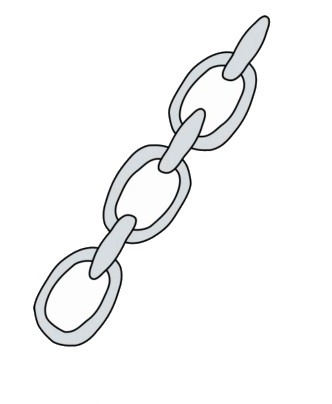When I left corporate life and set up on my own, I vowed I would never work for anyone else ever again.
It’s a process, a journey. Sometimes it hums along happily, other times – to use a well-worn comparison – it can be a roller coaster.
Never in my life have I expended so much energy and resource on my own personal and professional development, and done so on my terms instead of in the pursuit of someone else’s agenda.
Working Remotely Doesn’t Make Me Remote
A word that crops up frequently when I talk about why I do what I do and love about it is, ‘freedom’.
Freedom in so many ways.
Freedom to build my own diary as I choose. To be financially independent and to be physically independent – to work remotely without being inaccessible.
Having the freedom to work remotely, and still work efficiently has it’s own set of challenegs. I’m pleased to host a guest on the blog talking about the the four things you must-have to make a success of remote working.

4 Must-Haves for Working Remotely
Working remotely has plenty of perks, and is often the best lifestyle for bloggers, writers, marketers, and entrepreneurs who don’t need the confines of an office to hold them down. They can create the schedule that is best for them and focus on the work at hand.
Yet the tools you have and the environment you place yourself in can count for a great deal. Good offices are designed to keep you focused and comfortable enough to avoid getting distracted, and you shouldn’t deny yourself the same benefits just because you’re working remotely.
1) A Dedicated and Comfortable Office Space
A dedicated office space will soon become a must-have for you if it isn’t one already. While you can work from your couch for the first week, it simply isn’t as effective as being able to close the door and shut out the world while you write or work.

Make sure it isn’t a room where you will get easily distracted and try to keep everything you might need at hand. Eventually, you might want to invest in a second monitor or other equipment to maximize the performance of the space.
It’s just as important that you have an office space that is comfortable to work in. Can you work well when you’re nearly freezing or trying to constantly fan yourself? While expensive for some, environment control will prevent a loss in productivity, and thus often pay for itself by those standards.
Similarly, try to find an ergonomic setup, and get a good chair. You’re going to be there for quite a few hours each week. Make it a place that doesn’t give you back pain over time.
If you’re a digital nomad, you don’t need to eschew all of these benefits. Simply try to create a similar environment in your area that you can work your best in and bring with you the equipment that will help you the most.
2) A Solid Internet Connection
When you work remotely, your internet connection is effectively your work connection, and just as important as the roof over your head and the water coming into your home. With that in mind, we highly recommend you get the best internet you can in order to better communicate with your clients or co-workers and gather related research materials.

You don’t want to be delayed because of an internet connection. Even if you wait just an extra two seconds for a page to load, those seconds add up (if you open hundreds of pages a day like some writers need to, it’ll be very noticeable). Take some time and search for the best options in your area, you’ll thank yourself later and feel much less frustrated.
3) Set Hours or Some Form of Self-Regulation
People working from home generally do a better job if there is some form of structure to their working lives, whatever form that may take. The reasons are as follows:
- People who tend to procrastinate might find themselves rushing before deadlines, taking off too much time and not scheduling themselves properly for a project. This can lead to subpar work and far more stress than you need in your life. Set hours can keep you on track.
- Some people might overwork themselves, constantly trying to squeeze one more article, call, or client in. Yet after a certain point productivity will decline so heavily that working extra will just set you back. Time off, which you will often need to set for yourself, is just as important as the time to spend in your office.
- People who split up their time too much (and this will vary from person to person) will find that they might not be able to get into a good headspace for work, putting hours on the clock but getting nothing actually done.
Whatever your schedule, try to stick to it and be realistic about the hours you can work.

4) Regular Time Away from the Home Office
While working remotely can be considering something like an introvert’s dream, most of us need to experience the world and talk with other people in order to stay our best selves. Working in an office often affords people the opportunity to spend time with co-workers or head out somewhere at the end of the day. Given enough supplies, some remote writers and workers can go a week without leaving their home and not even realize it.
This isn’t particularly healthy, and so you’ll want to make sure your social needs are being met as you enjoy your remote work. Schedule time to spend with family and friends and make an effort to make plans outside of the home, whether with people you know or just by yourself. The change of scenery will do you good.
Conclusion
It’s very likely that you will have additional needs on top of those listed above, but we recommend going after the essentials first and making sure that your remote working environment and lifestyle is an efficient and comfortable one. These items will only help in the long run and make your career more sustainable for you in more ways than one.
Are you a remote worker that has additional needs on top of those listed above? What must-haves would you list? How do you address what was listed above? We would love to hear your thoughts, so please leave a comment below.
Byline: Kevin Conner is the founder and CEO of Vast Bridges, a customer acquisition and lead generation company in the home services arena. His strengths lie in creating a strategic vision and leading a team to successfully execute that vision.
